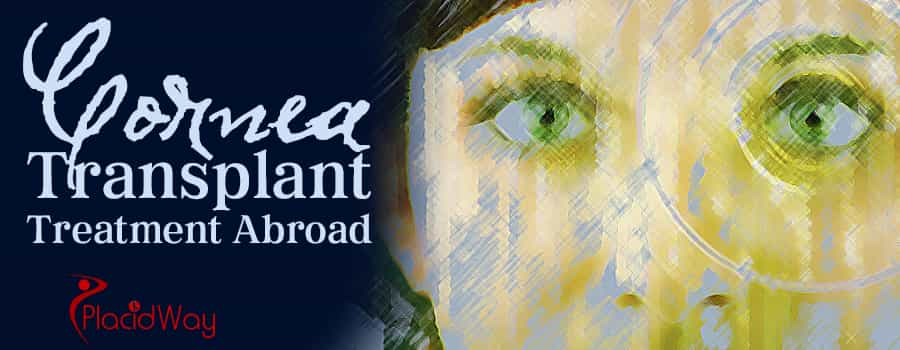
A cornea transplant is considered to be a type of organ transplant, although only a small portion of the eye is transplanted or grafted. The cornea is the dome shaped surface of the eye that helps focus vision. Cornea transplants are common in the United States and around the world, and is one of the most common types of transplant performed in America. According to the Eye Bank Association of America, nearly 40,000 of them take place on a yearly basis. In most cases, a cornea transplant is performed to restore vision to individuals who have received some damage to the cornea, or those who suffer from swelling, thinning, scarring or clouding of the cornea caused by injuries, infections, or medical conditions.
A cornea transplant may also be called a corneal transplant, a corneal graft, penetrating keratoplasty (PK) or keratoplasty. The corneal graft is a procedure that repairs or replaces damaged corneal tissues caused by injury or disease. In many cases, individuals undergoing such procedures are restored to fully functional vision.
A new technique called Descemet's Stripping Endothelial Keratoplasty (DSEK) is a newer form of corneal transplant technique that utilizes a thin portion of the cornea for transplantation. In many cases, this technique is preferred because of less side effects such as an irregular corneal surface, more commonly known as astigmatism.
Prior to cornea transplant surgery, an ophthalmologist will perform a thorough eye exam and take measurements of the eye. Replacement corneas come from donors, though waiting times in the United States is relatively short because many deceased individuals have designated themselves as organ donors on their driver's licenses. Corneal tissues are the most commonly used organs used for transplants due to their availability and in most cases, overall health and functionality.
During the procedure, the physician will cut through the thickness of diseased or injured cornea and remove a small disk of corneal tissue. A special instrument called a trephine makes this circular cut in the eye without damaging surrounding tissues. The donor cornea is trimmed to fit and then placed in the opening left by the removed cornea and held in place by fine stitches. Such a procedure is called a full thickness cornea transplant.
A partial thickness or lamellar cornea transplant may also be performed, which is a preferred technique for replacing surface layers of the cornea, or inner layers of the cornea. With these techniques, thin layers of the existing cornea are shaved, or pared away rather than the entire cornea.
Cornea transplants as correction for vision is an effective and beneficial treatment for many patients. Cornea transplants are often utilized to correct refractive vision problems such as nearsightedness and farsightedness, as well as astigmatism. In addition, any individual suffering from eye diseases, refractory issues, chemical burns, LASIK surgery complications or scarring from infections may benefit from cornea transplant procedures. A very small percentage of patients experience rejection of donor corneas, but in most cases, surgical procedures are completely successful and restore damaged, blurred, and distorted vision
A cornea transplant procedure is performed by a certified ophthalmologist, who should have ample experience with a multitude of corneal transplant procedures and techniques. A cornea transplant surgeon should specialize in partial corneal transplants, full corneal transplants, cataract surgeries and other ophthalmologic treatments. Verify education, accreditation, and certification from a physician's state or country of origin as well as membership in Ophthalmology associations and organizations in his or her country of origin.
Get in touch with us and find out more about your options!
Best Organ Transplant Center | Cheap Organ Transplant Packages